Is it cheaper to heat your home with natural gas or electricity? Recent stories in the news focus on converting gas appliances to electricity, since the latter is a renewable energy and thought to be ‘clean'. But what about the costs? Which is cheaper: natural gas vs. electric furnace?
I'll cut to the chase to save you time: The initial purchase, installation and maintenance of an electric furnace is considerable cheaper than that of gas heaters. However your energy bills will be considerably lower with gas furnaces that with their electric counterparts. Want to know more? Read on:
Clients of mine were recently looking at purchasing a brand new home. Everything looked great until we came to the furnace! It was an electric air-forced furnace instead of the more common natural gas models. Note: some builders are regularly installing electric furnaces into new homes.
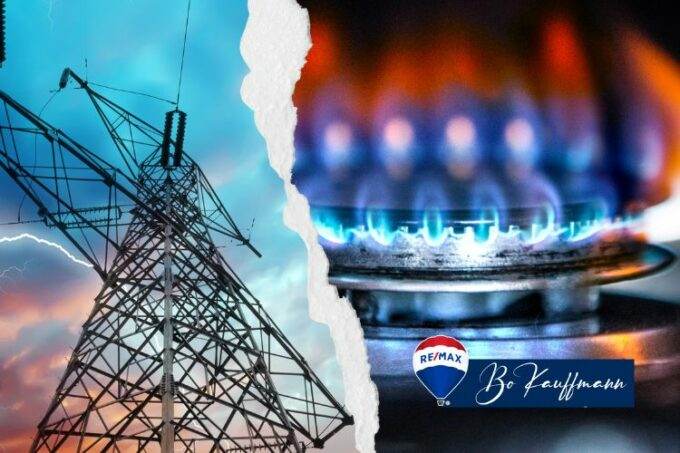
Which provides cheaper heat? Natural Gas vs. Electric Furnace
My clients were under the impression that it would cost a lot more to heat their home with electricity than natural gas. That couldn't be right, could it? We are living in Manitoba, a Hydro-Electric super-producer. Surely, heating a home with an electric furnace could not be significantly more expensive than heating it with a gas furnace, could it?
Natural Gas vs. Electric Furnace
This question led me to do a little research and I was quite surprised by what I found. Each type of furnace has unique advantages, and some disadvantages as well.
We should look at 3 different costs, which are:
- The cost of purchasing and installing the furnace (upfront costs)
- Ongoing maintenance costs
- Yearly energy costs (utility bills)
1) Cost of the furnace
According to Modernize.com, the cost of an average electric furnace ranges between $600 and $1,500. This makes it significantly cheaper than a comparable gas fired furnace. On Angi.com we see that an average gas furnace would run from $2250 to $4000. Note that these are prices in the United States.
Installation costs will depend on your current setup. If you are replacing one type with another, you may require a new gas line or new electric wiring. Let's call that a ‘push'. So at the outset we can see that electric heating systems are cheaper to purchase than their natural gas counterparts.
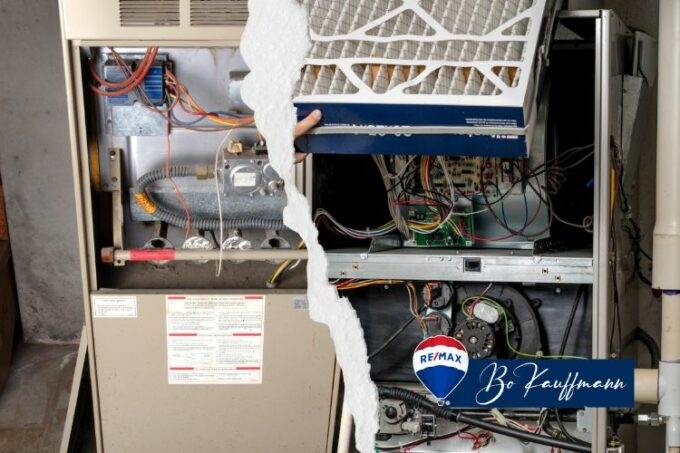
2) Longevity and Maintenance Costs
An electric heater is basically a stove element with a fan attached to it. No carbon monoxide exhaust or fumes to worry about. These are much simpler in design than natural gas appliances or furnaces.
Furthermore, according to this article by Apollo Heating and Air Conditioning in Minnesota, another advantage for electric furnace is its longevity: Life expectancy of 20-30 yrs as compared to the 15-20 yrs of an average gas-fired model. Also, electric furnaces are much quieter during operation.
Longer life and less complicated systems mean that over time (less maintenance), an electric furnace will cost less to maintain than a gas furnace. So far, the electric version costs less than natural gas heating appliances. Which brings us to point #3:
3) Operating Costs (energy prices)
Here we need to look at two things: The cost of the energy sources (natural gas prices vs. electricity costs) and the energy efficiency of each heating system. Luckily, both fuel costs are available expressed as kWh or kilo-watt-hours. Lets look at typical electricity costs in Canada, as provided by Energyhub.com
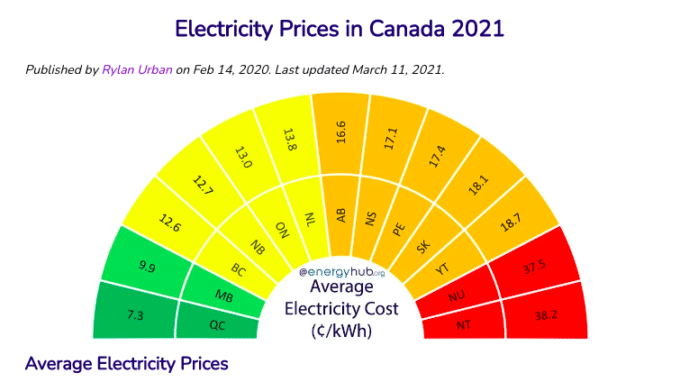
Cost of fuel is a major factor in the discussion of ‘Natural Gas vs. Electric Furnace”
As you can see, electricity rates vary widely from one province to another. From 7.3 cents in Quebec to 38.2 cents in the Northwest Territories. You will find the prices range in the United States as well, state by state.
They calculate that the average electric rates in Canada works out to 17.9 (CAD) cents per kWh. Let's convert it all to US dollars just to be equal. So the average price sits at 13.4 cents per kWh of energy.

US. electricity prices, as per Globalpetrolprices.com, average 17.5 cents per kilowatt hours.
Now let's take a look at natural gas prices. Here we get a bit of help, as prices are already available expressed as kWh as well. According to Globalepetrolprices.com, natural gas in Canada is priced at 3.9 cents (US) and in the United States it's 5.5 cents. In a table we can see the price difference all summed up:

Natural Gas vs. Electric Furnace: Gas prices are 68 to 70% lower
Here we can see that our home heating bills would be 68-70% cheaper when using natural gas than when using the equivalent amount of electric energy. (Incidentally, 1 kWh = 3,412 B.T.U.s or British Thermal Units of heat.)
This now leads us to the last remaining variable: the energy efficiency of each furnace. Electric models are said to be 100% efficient. Every dollar of kwh of electricity is converted into heat energy. On the other side, older gas furnaces are between 75% to 80% efficient (often having a pilot light always on) However, newer high efficiency models range up to 98%.
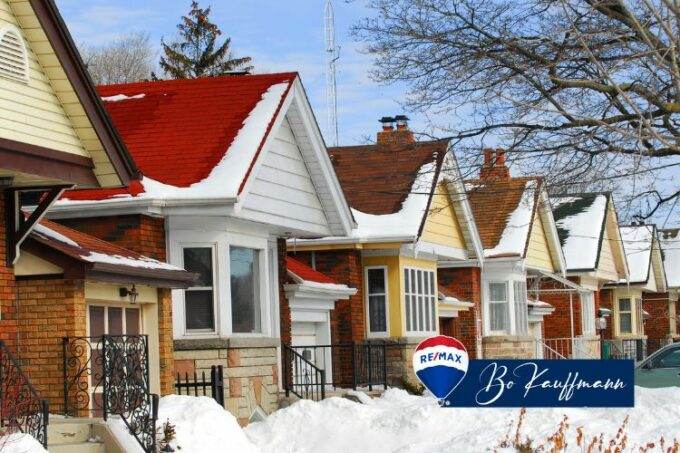
Summary: If you are concerned about climate change, the environment, air quality and using renewable sources, the good news is the the initial costs of an electric furnace is lower than their gas model counterparts.
However your electric bill will take a significant hit using electric appliances.
For the initial higher cost of a gas furnace, your yearly home heating costs will be significantly lower than the cost of electric heating. This will provide savings over the long run.
Q: Which is a cheaper way to heat my home? Natural gas vs. electric furnace?
A: While the upfront and maintenance costs of a gas furnace are higher than those of the electric versions, your yearly utility costs are significantly lower using natural gas. This is because natural gas is about 60% cheaper generating the same amount of heat. Electric furnaces would have a huge impact on your electricity bill.
Note: This information is correct to the best of MY knowledge, however if you are serious about updating your current heating system, you should consult an expert in the field. Contact me for a referral:
And remember, if you're thinking of buying or selling, a house or a condo, in Winnipeg, call me or email me anytime.
 About the Publisher
About the Publisher
Bo Kauffmann is a residential real estate agent with over 18 yrs experience in helping buyers and sellers achieve their goals. Inducted into the REMAX Hall of Fame in 2010 and receiving the REMAX Lifetime Achievement Award in 2019, Bo has sold over 500 houses and condos in the Greater Winnipeg market. He is an accredited buyer representative (A.B.R.) and a Luxury Home Marketing Specialist.
Bo provides exceptional service to First-Time Home-Buyers, Seniors looking to downsize and Home Sellers of all ages.
He can be reached easily By E-Mail or call/text him Call/Text Here
Never miss an episode of our real estate podcast. Install our FREE Podcast App available on iOS and Android. For your Apple Devices, click here to install our iOS App. For your Android Devices, click here to install our Android App. Check my videos on Youtube





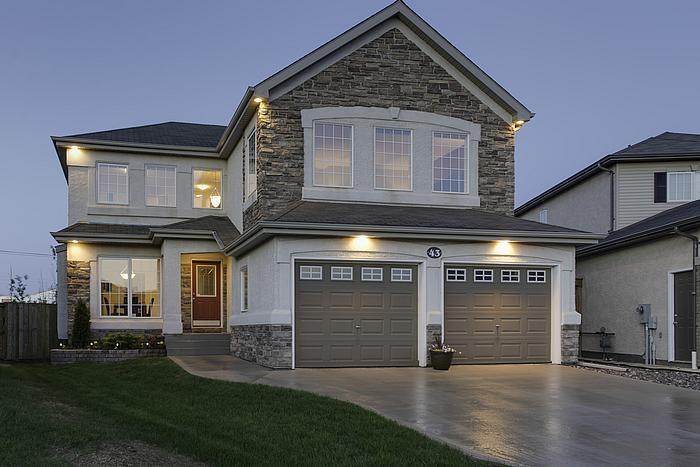

Tomas
This is very interesting post , you can also refer to the local company that posted some great info here https://www.fairserviceheating.ca/definitive-guide-save-money-by-preparing-house-for-winter
sometimes you can’t choose gas over electric ..
Bo Kauffmann
Absolutely good point…..Gas is not always available.
Pam
Helpful content. I’m just getting into home improvement and have learned a lot from your article and videos.
Mark Reyes
Thanks for this extensive and thorough discussion on natural gas versus electric furnace. While it is quite expensive, i think getting an electric furnace would be an advantage for me in the long run. Tad friendly to the environment, a least likely to cause an accident. But anyway, whatever works best for one’s home.
Charlene G
I definitely would choose to have an electric furnace. Yes, I know it’s going to be really expensive in the long run but it’s going to be worth it, trust me. And it’s way easier to manage than a natural one.
Maury Cheskes
Interesting comparisons. If you live in Canada then a gas furnace may be of more value for generating heat. I imagine electric furnaces are better for the environment though which I’m sure many people would take into consideration.
David Tjoe
I think this really depends on their needs and from previous experience. So even if explained in detail, people will still choose to use things they normally do. But all certainly there are advantages and disadvantages of each of these choices.
David Mureithi
There are lots of differences between the two. It’s good to have this knowledge whenever you need to upgrade.
Aissa Jo Quizon
I am quite torn between the electric and the natural gas furnace. One should think of the savings that could be had in the long run, and how efficient it is in heating costs should the cold weather comes around.
I guess it really is up to the person paying for what kind of furnace he or she will get. It really also depends on what needs his or her family and house has in the long run should the other expenses come into place.
Scott Summerrs
Each have pros and cons but I would rather go to electric. Simply because it requires less human intervention a switch does everything. Sure gas does as well but it is more manual meaning, one mess up and its done accident. In electric there is less of that.